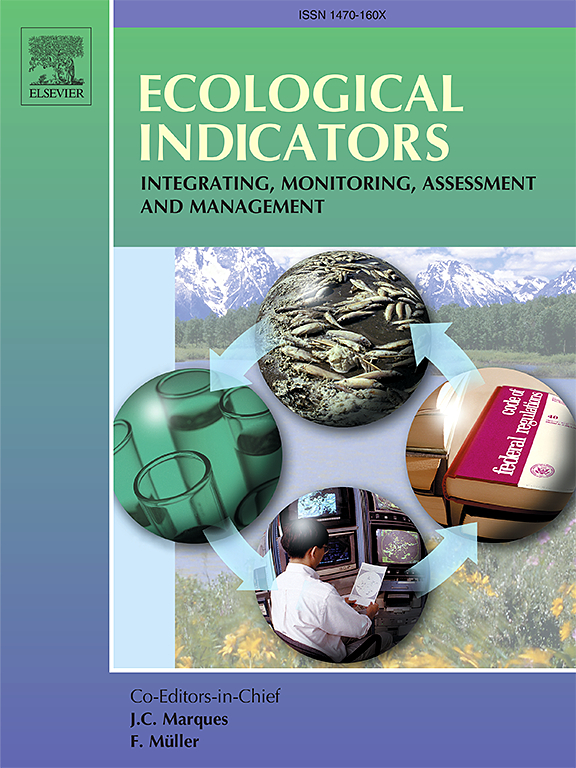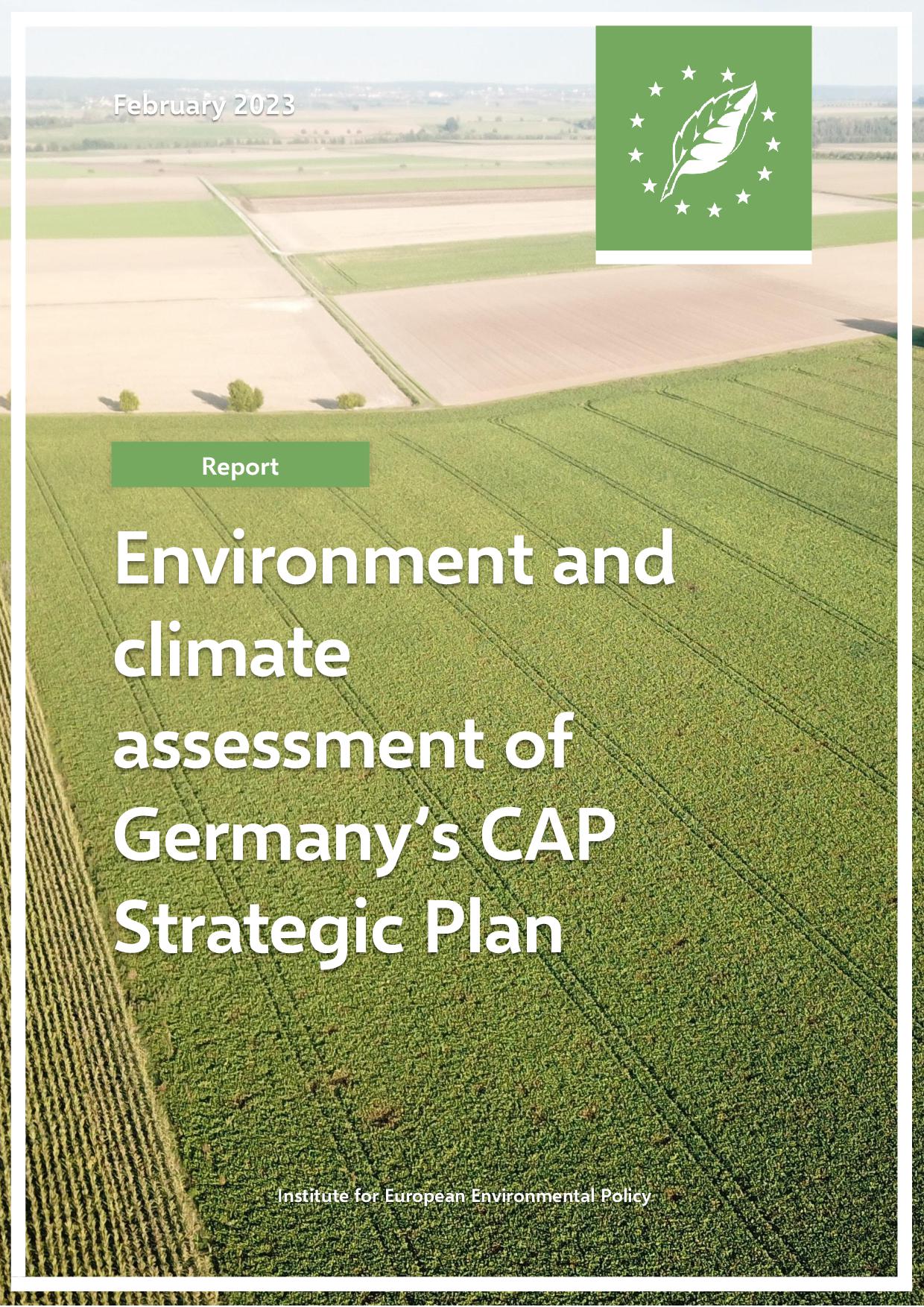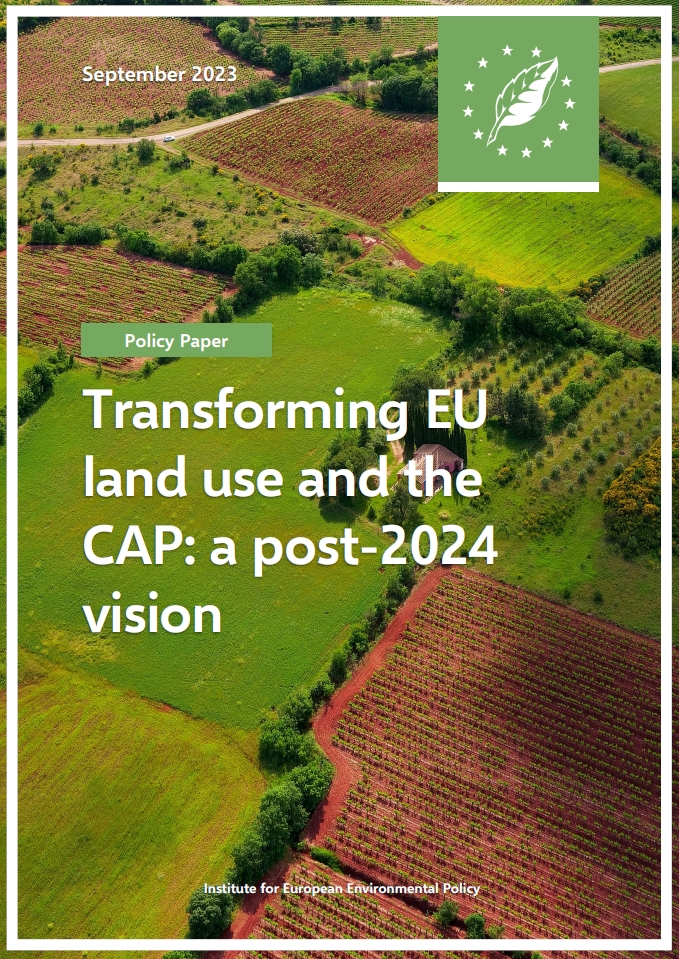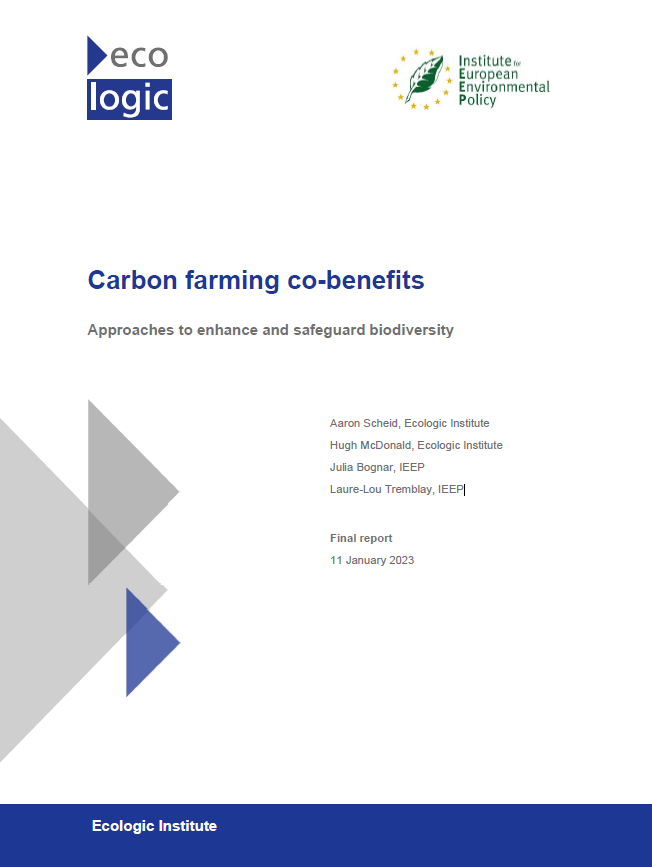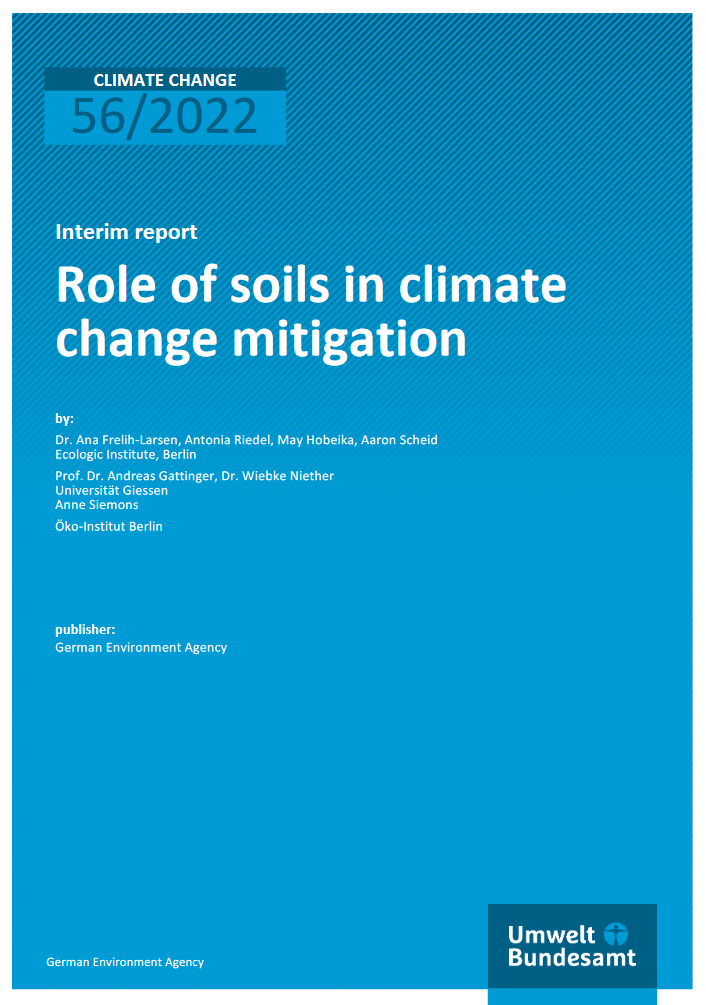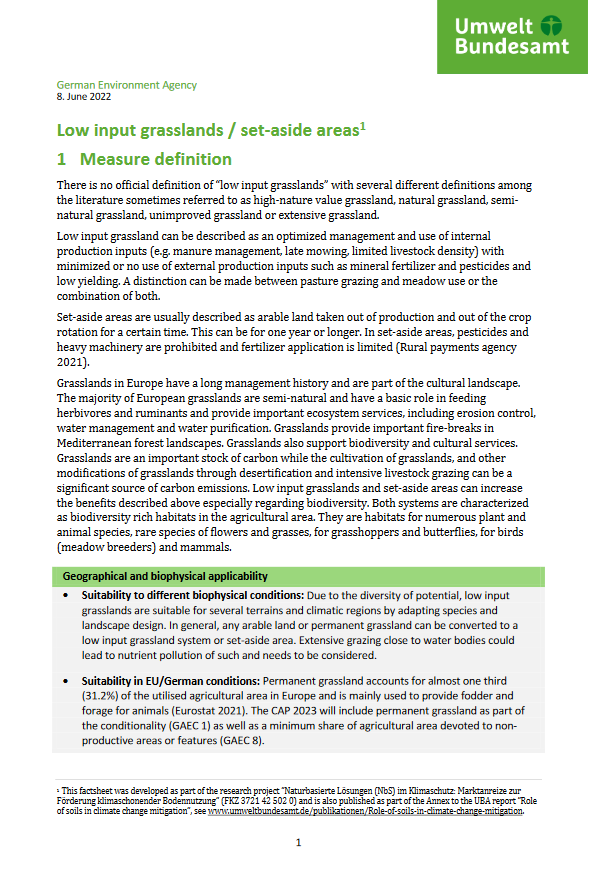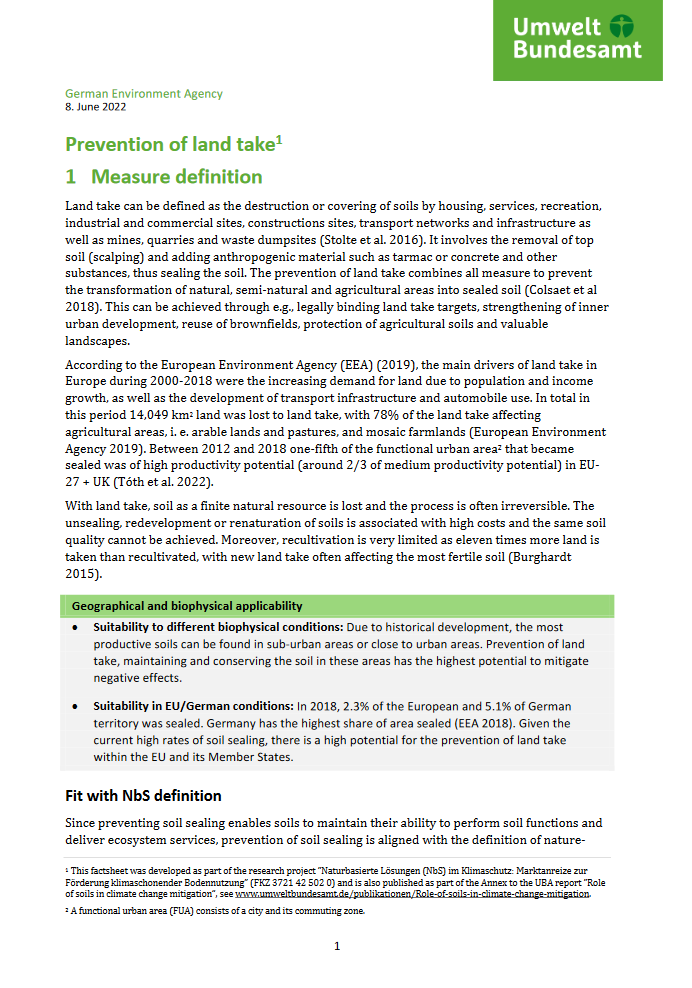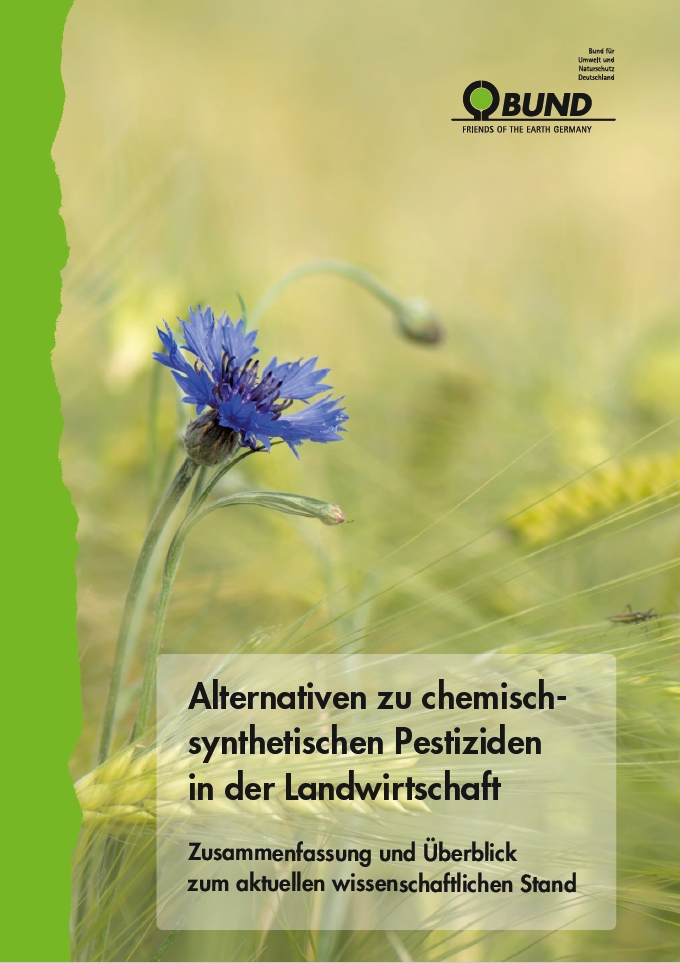
Aaron Scheid
MSc (Global Change Management)
Coordinator Agriculture & Soils
Fellow
- Team
- Topics
Aaron Scheid is a Fellow at Ecologic Institute. His areas of expertise are agricultural policy and land use, with a focus on the Common Agricultural Policy (CAP), carbon farming, carbon pricing mechanisms and nature-based solutions. Aaron Scheid works in English and German.
At Ecologic Institute, Aaron Scheid leads studies on the assessment and evaluation of the Common Agricultural Policy and CAP Strategic Plans. He also contributes to the projects "Capacity Building for Ambitious Climate Action in the Agri-food Sector in Central Eastern Europe, Peatland Rewetting in Nitrogene-Contaminated Environments" (PRINCESS), "Pay as You Eat Meat – A European strategy to internalize the external costs of meat" and supports the Directorate-General for Climate Action in analysing stakeholder feedback to the Call for Evidence, in preparation of an impact assessment on options for the certification of carbon removals. Additionally, he contributes to the Horizon 2020 projects "A European-wide Network of Pilot Farmers for a Carbon Neutral Europe" (Climate Farm Demo) and "Sustainable Plant Protection Transition: A global health approach" (SPRINT).
Before joining Ecologic Institute, Aaron Scheid worked as a research assistant for a member of the German Parliament, focusing on policies related to agriculture, forestry and fisheries in the time period from 2018 until 2021. His work was dedicated mainly to the committee for food and agriculture.
Aaron Scheid has completed a master's degree in Global Change Management at the Eberswalde University for Sustainable Development (HNEE). He wrote his thesis on small scale farmers' adaptation measures to fuelwood scarcity in central Tanzania in cooperation with the Leibniz Centre for Agricultural Landscape Research (ZALF).
Contact Aaron Scheid by Email
Selected publications by Aaron Scheid
Tanneberger, Franziska et al. (2024) 'Quantifying ecosystem services of rewetted peatlands − the MoorFutures methodologies' Ecological Indicators 163 (2024), p. 112048. doi: 10.1016/j.ecolind.2024.112048.
Bognar, Julia et al. 2023: Pricing agricultural emissions and rewarding climate action in the agri-food value chain. Rotterdam: Trinomics.
Scheid, A. and S. Ittner (2023) 'Assessment of the German CAP Strategic Plan: environmental and climate contributions', Policy report, Institute for European Environmental Policy and Ecologic Institute
Baldock, D. and Bradley, H. (2023) ‘Transforming EU land use and the CAP: a post-2024 vision', Policy Paper, Institute for European Environmental Policy
Scheid, Aaron et al. 2023: Carbon farming co-benefits: Approaches to enhance and safeguard biodiversity. Berlin, Brussels: Ecologic Institute, IEEP.
Frelih-Larsen, Ana et al. 2022: Role of soils in climate change mitigation. Interim Report. Climate Change 56/2022. German Environment Agency: Dessau-Roßlau.
Scheid, Aaron et al. 2022: Low input grasslands / set-aside areas. Factsheet. German Environment Agency: Dessau-Roßlau.
Scheid, Aaron et al. 2022: Prevention of land take. Factsheet. German Environment Agency: Dessau-Roßlau.
Scheid, Aaron; May Hobeika; Antonia Riedel 2022: Alternativen zu chemisch-synthetischen Pestiziden in der Landwirtschaft. Zusammenfassung und Überblick zum aktuellen wissenschaftlichen Stand. Berlin: Bund für Umwelt und Naturschutz Deutschland e.V. (BUND)
Baldock, David et al. 2022: Towards a Transformative Sustainable Food System Legislative Framework. Think2030 Policy Brief.
A Scheid et al 2018 Environ. Res. Lett. 13 095004
Scheid A, Hafner JM, Hoffmann H, Kächele H, Uckert G, Sieber S and Rybak C (2019) Adapting to Fuelwood Scarcity: The Farmers' Perspective. Front. Sustain. Food Syst. 3:28. doi: 10.3389/fsufs.2019.00028
Selected events by Aaron Scheid
Digital Event:Alternatives to Synthetic Chemical Pesticides in Agriculture
- Date
-
- Location
- online
Selected presentations by Aaron Scheid
Panel discussion:What's in for Climate and Environment?
- Date
-
- Location
- Berlin, Germany
Panel discussion:Stocktaking and Alternatives to Pesticides in Agriculture
- Date
-
- Location
- online
Interview:Alternatives to Pesticides also Exist for Conventional Agriculture
- Date
-
- Location
- Deutschlandfunk, Germany



